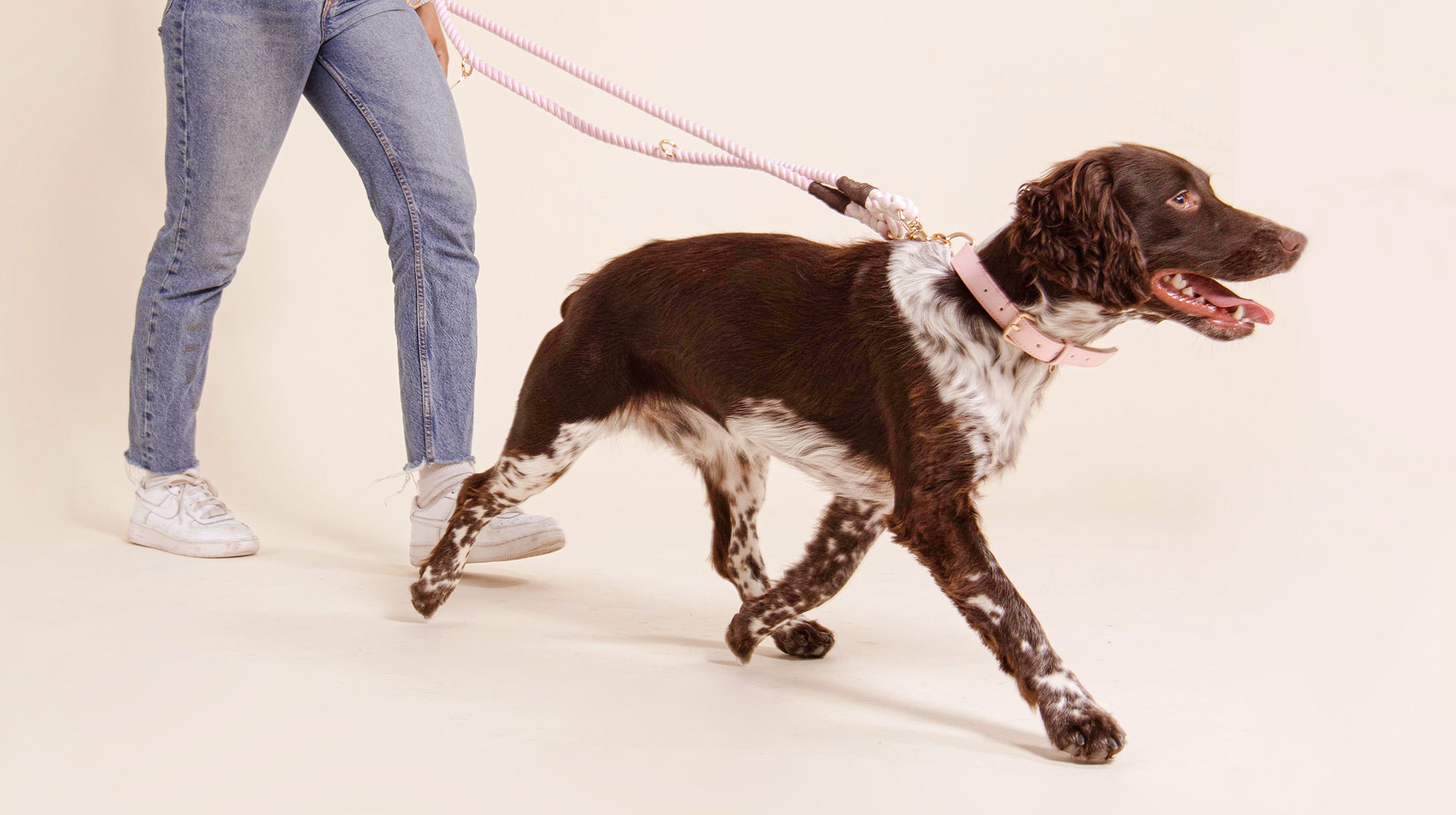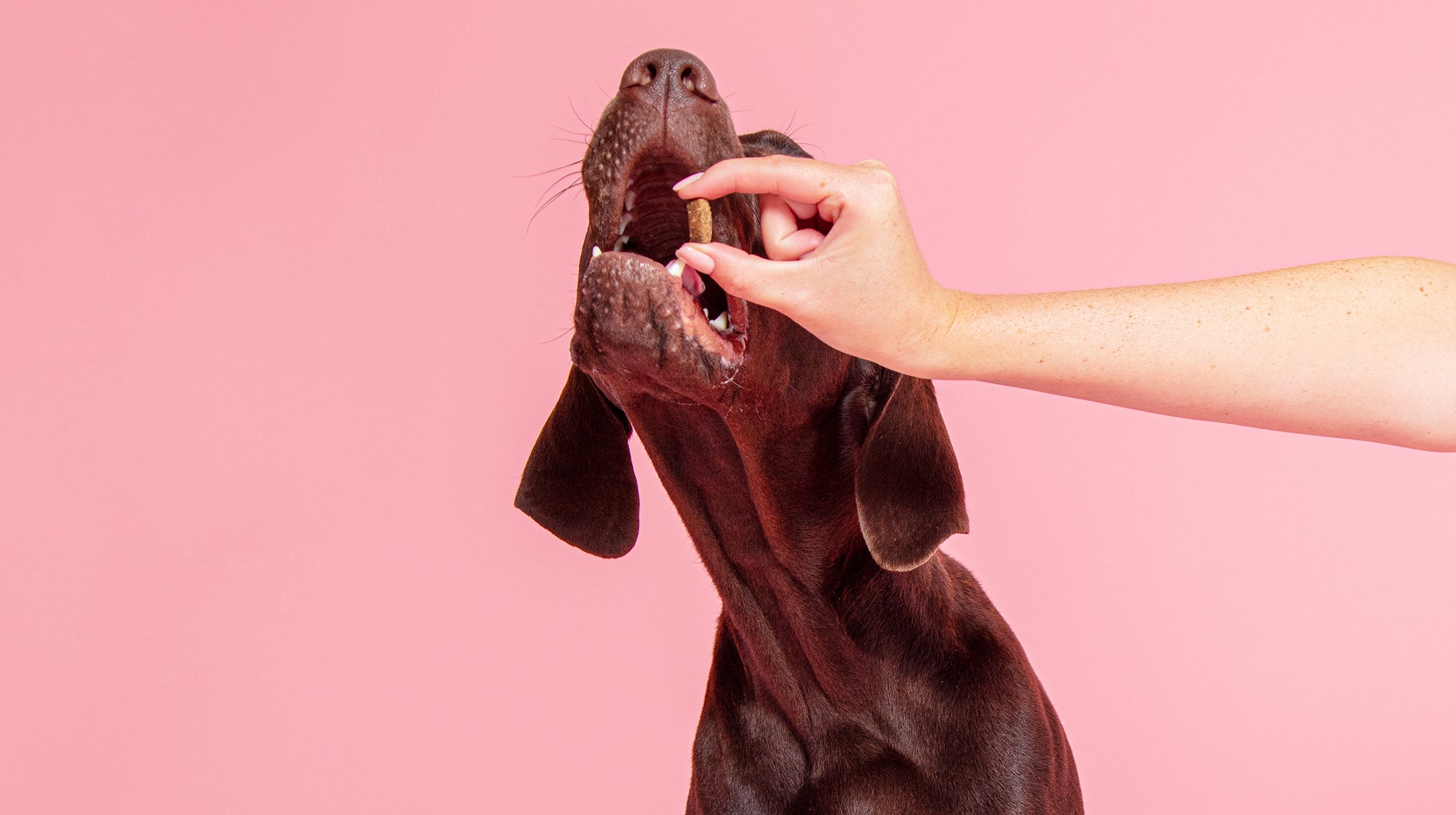FREE UK DELIVERY ON ORDERS OVER £39.99
Pooches everywhere have problems with anxiety - they are, after all, extremely in-tune with their emotions and very easily pick up on changes in their environment.
There are some scenarios when a dog’s anxiety intensifies, however - and one of the most common triggers is bedtime. When a dog senses it’s time to sleep, they may get ‘zoomies’, become hard to control or behave in a somewhat agitated manner, leaving you wondering, ‘Is this how it has to be every night?’
Never fear - because no matter how bedtime-averse your pooch is, we’ve got some great techniques for improving their sleep routine, eventually easing your dog into bed every night without struggle or panic. Read on to learn some smart tips and tricks to settle a dog at night.
The moon is up, everyone’s wound down from a busy day, and it’s time for your pooch to hit their basket, den or wherever they tend to feel most rested. However, your dog has other ideas - and could be particularly excitable, jumpy or defiant.
There could be bigger problems at play, but it’s likely this bedtime issue can be remedied with a few simple changes. Consider the following bedtime techniques for dogs, and hopefully they’ll be catching zeds more readily in no time:
Even humans sometimes feel cheated out of a good day when the bedtime hour comes round - “What, already?” - and it seems dogs can feel the exact same way.
To ensure your pooch feels rested and satisfied once it’s time to sleep, spend some quality time with them in the hours beforehand. This could be cuddling, playing with toys or just sitting with them for a nice head scratch. The mental stimulation should exert their energy just enough to have them all tuckered out for bed. Time spent together can also be a great option if your pooch suffers from separation anxiety at night, as they’ll feel safe and secure in your close proximity.
There’s nothing like physical exertion to release those powerful sleeping endorphins, so try heading out for an extra walk with your dog in the evenings. Your pooch will likely love the outdoor time and the extra stimulation should wear them out within minutes of getting home, ready for a good night’s sleep. A bonus point - it should tire you out, too!

Some tasty dog calming treats could be the ticket if your pooch has a habit of getting angsty before bed. Treats to calm your dog generally contain naturally soothing ingredients, such as chamomile, hemp or valerian root - giving them a boost of relaxation that should lull them into sleep mode. Treats can come as supplements, or calming dental sticks, meaning there are plenty of ways to try and engage their appetite.
A healthy sleep environment is key to a deep, restful sleep - and that applies to dogs just as much as humans. If your pooch doesn’t have their own sleep spot, this is an essential - whether it be a comfy basket, blanket, dog house or cool, dark room they like to retreat to. It should be cool, dry and quiet in their sleep spot, with no chance of sudden interruptions or lights causing them to feel nervous.
Though it’s easier to crate train a puppy, you can still crate train a dog at any age to improve symptoms of anxiety and unease. Dogs are naturally drawn to being in a den-like environment, so a crate should instil in them a sense of safety and security. Get in touch with your vet or a behavioural expert about gradually introducing crate training into your pooch’s night-time routine, and as they begin to associate the crate with sleep, it could significantly improve your bedtimes.
If you’re wondering how to calm a puppy down at night, they are more susceptible to crate-training, so this could work wonders for their night time over-excitement.
Dogs are much like children when it comes to feeling safe and comfortable, so be sure they have many self-soothers available, such as familiar blankets, favourite cuddly toys and comforters to snuggle up to. Sometimes it helps to have a dog toy you only bring out at bedtime, so when it appears, your pooch knows it’s time to be calm and settle down for the night. You can even get cuddly toys with a ‘heartbeat’ inside. The sound and subtle pumping motion of the heartbeat helps them feel like they’re snuggled up to their favourite hooman, or pooch mama from the puppy days.
Like cuddly toys and comforters, familiar smells that indicate bedtime can be a good way to get a dog into sleep mode. Some pooch parents use air diffusers or a room spray that emanate special dog-soothing pheromones (a subtle lavender or soft ‘night time’ scent), while others find putting on some soft, unobtrusive music in their dog’s sleeping area helps. On the other hand, just making sure there are no sounds at all in your dog’s sleep space is another fail-safe route.
If your dog is usually trouble-free at bedtime, but suddenly behaves differently when it’s time to sleep, this could be an indicator of a health issue. Keep note of your dog’s changed behaviour, along with any other symptoms such as diarrhoea, a suppressed appetite or increased anxiety, and take them to the vet for a check-up.

If, after trying all the above techniques, your pooch is still suffering from agitated nerves every bedtime, it could be worth seeking the help of a professional. This especially applies if your dog experiences severe anxiety at other times of the day, or generally struggles to get by day-to-day without feeling high levels of stress.
With some professional input, your dog could relearn some old behaviours that will significantly improve their quality of life, and hopefully improve bedtimes for the whole family.
What your dog eats each day has a huge impact on their mood and behaviour. If you’re thinking “What can I give my dog for anxiety?” and are on the lookout for some tasty calming feeds, try some of the products from our Calming Range.





Never miss a treat!
Subscribe to our newsletter and get blog articles amongst other treats delivered to your inbox

Comments (0)
Leave a comment